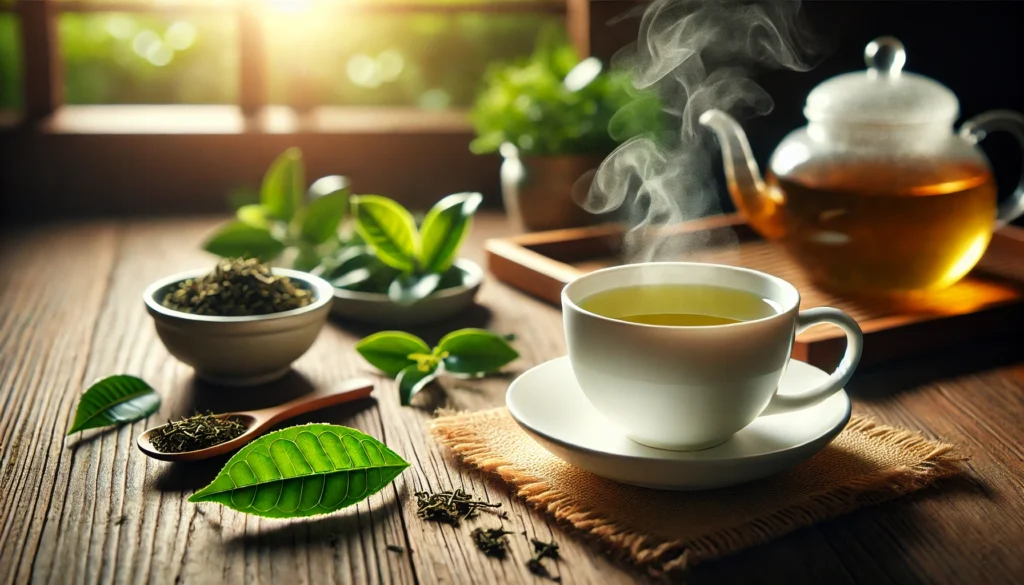Understanding Social Anxiety and Panic Attacks
Social anxiety disorder and panic attacks are conditions that can severely impact a person’s quality of life, making even everyday interactions daunting. Social anxiety is characterized by an overwhelming fear of judgment, embarrassment, or scrutiny in social situations. People with social anxiety may avoid gatherings, struggle with public speaking, or experience intense nervousness in unfamiliar settings. Panic attacks, on the other hand, are sudden and intense episodes of fear or discomfort, often accompanied by symptoms such as heart palpitations, shortness of breath, and dizziness. These attacks can feel life-threatening, even when they are not.
You may also like: Best L-Theanine Supplements for Cognitive Clarity: Benefits, Dosage, and Anxiety Relief
While social anxiety and panic attacks differ in their presentation, they often share underlying mechanisms, such as heightened sensitivity to stress and an overactive fight-or-flight response. Many people turn to pharmaceutical treatments, such as selective serotonin reuptake inhibitors (SSRIs) or benzodiazepines, to manage their symptoms. However, these medications come with potential side effects, including drowsiness, dependency, and withdrawal symptoms. This has led many individuals to explore natural alternatives, including L-theanine, a compound found in green tea, for its calming effects.

What Is L-Theanine?
L-theanine is a naturally occurring amino acid primarily found in tea leaves, particularly green and black tea, as well as certain mushrooms. It is well known for its ability to promote relaxation without causing drowsiness. Unlike other calming compounds that can induce sedation, L-theanine helps enhance mental clarity while reducing stress and anxiety. This unique property makes it a compelling option for individuals dealing with social anxiety and panic attacks who wish to remain alert and focused while managing their symptoms.
The effects of L-theanine are primarily mediated through its influence on neurotransmitters in the brain. It enhances the production of gamma-aminobutyric acid (GABA), a neurotransmitter responsible for reducing neuronal excitability and promoting calmness. Additionally, L-theanine increases levels of dopamine and serotonin, two chemicals associated with mood regulation and well-being. These neurochemical effects create a state of relaxed alertness, making L-theanine a valuable tool for those seeking natural support for anxiety-related conditions.
The Science Behind L-Theanine and Anxiety Reduction
Numerous scientific studies have examined L-theanine’s effects on stress, anxiety, and cognitive function. Research has shown that L-theanine promotes alpha brain wave activity, which is associated with a state of relaxed alertness. Unlike sedatives, which depress the nervous system, L-theanine works by modulating neurotransmitter activity, making it a safer alternative for long-term use.
A 2019 study published in the journal Nutrients investigated the impact of L-theanine supplementation on stress and anxiety. The study found that participants who consumed L-theanine experienced significant reductions in stress-related physiological markers, including lower heart rate and cortisol levels. Another study published in Biological Psychology demonstrated that L-theanine enhances alpha wave activity within 30 to 40 minutes of consumption, leading to increased relaxation without impairing cognitive performance.
These findings suggest that L-theanine can be a powerful tool for individuals experiencing social anxiety and panic attacks. By promoting a state of calm without sedation, it allows individuals to navigate stressful situations more effectively. Unlike traditional anxiety medications, which can dull emotions or induce drowsiness, L-theanine supports relaxation while preserving mental clarity.
L-Theanine’s Impact on Panic Attacks
Panic attacks can be particularly distressing due to their sudden onset and intense physical symptoms. While traditional treatments often focus on managing acute symptoms with fast-acting medications, L-theanine offers a preventative approach by reducing baseline anxiety and improving stress resilience. By modulating neurotransmitter activity and enhancing GABA function, L-theanine helps prevent excessive neuronal excitation, which is a key trigger for panic attacks.
One study published in the Journal of Functional Foods examined the effects of L-theanine on individuals with high levels of stress and anxiety. The researchers found that participants who consumed L-theanine regularly reported fewer panic attack episodes and improved emotional regulation. Additionally, they exhibited lower levels of stress hormones, suggesting that L-theanine may help create a buffer against sudden spikes in anxiety.
L-theanine’s ability to lower blood pressure and reduce heart rate variability further supports its use in panic attack prevention. Many individuals who experience panic attacks report a racing heart and difficulty breathing, symptoms that are directly linked to the body’s fight-or-flight response. By calming the nervous system and promoting physiological relaxation, L-theanine can help mitigate the severity of panic attack symptoms, making it easier for individuals to regain control.
Using L-Theanine for Social Anxiety and Panic Attacks
For those interested in incorporating L-theanine into their anxiety management routine, it is essential to consider dosage, timing, and potential interactions. Most studies suggest that a dosage of 100 to 400 mg per day is effective for reducing stress and anxiety. While L-theanine is naturally present in green tea, achieving therapeutic levels through tea consumption alone may be challenging. Therefore, many individuals opt for L-theanine supplements, which provide a more concentrated and controlled dose.
L-theanine is generally well-tolerated, with minimal side effects. However, individuals who are taking medication for anxiety, depression, or blood pressure should consult with a healthcare provider before starting L-theanine supplementation. Since L-theanine can enhance relaxation, combining it with sedatives or other calming agents may lead to excessive drowsiness.
The Role of L-Theanine in Cognitive Enhancement
Beyond its anxiety-reducing properties, L-theanine is also known for its cognitive-enhancing effects. Many individuals who experience social anxiety or panic attacks struggle with brain fog, reduced concentration, and mental fatigue. L-theanine, particularly when combined with caffeine, has been shown to improve focus, attention, and mental clarity. This makes it a valuable addition for those who need to perform under stress without the jittery side effects of stimulants.
A study published in Psychopharmacology examined the combined effects of L-theanine and caffeine on cognitive performance. The results indicated that participants who consumed both compounds experienced improved attention, faster reaction times, and enhanced working memory. This suggests that L-theanine not only alleviates anxiety but also helps optimize cognitive function, making it an ideal supplement for individuals looking to manage stress while maintaining peak mental performance.

Frequently Asked Questions (FAQ) About L-Theanine for Social Anxiety and Panic Attacks
1. How does L-theanine help with social anxiety?
L-theanine has been shown to promote relaxation without causing drowsiness, making it particularly beneficial for individuals struggling with social anxiety. It works by increasing the production of calming neurotransmitters such as GABA and serotonin, which help regulate mood and reduce excessive nervousness in social settings. Additionally, L-theanine modulates alpha brain waves, which are associated with a state of relaxed alertness, making social interactions feel less overwhelming. Studies suggest that L-theanine social anxiety relief can be noticeable within an hour of consumption, making it an excellent option for situational anxiety. Unlike pharmaceutical anxiolytics, L-theanine does not impair cognitive function, allowing individuals to remain engaged and communicative while feeling more at ease.
2. Can L-theanine be used to manage panic attacks?
Many individuals have reported success using L-theanine for panic attacks due to its ability to lower stress-related hormones like cortisol. Theanine panic attacks treatment works by promoting a balanced autonomic nervous system, preventing the body from entering a heightened fight-or-flight response. Additionally, its effects on dopamine and serotonin levels contribute to emotional stability, reducing the likelihood of a panic episode. Unlike some traditional anti-anxiety medications, L-theanine does not cause dependency or withdrawal symptoms, making it a safer long-term solution. However, while it may help lessen the severity of panic attacks, individuals experiencing chronic panic disorder should consult a healthcare professional for a comprehensive treatment plan.
3. How quickly does L-theanine take effect for anxiety relief?
The onset of L-theanine’s effects can be relatively fast, typically within 30 to 60 minutes after consumption. This rapid action makes L-theanine for social anxiety particularly useful before high-stress situations such as public speaking, job interviews, or social gatherings. Unlike some anxiety medications that require weeks to build up in the system, L-theanine offers more immediate relief without the risk of sedation or mental fog. Regular use may also improve baseline anxiety levels over time by supporting overall neurotransmitter balance. For those dealing with frequent anxiety, taking L-theanine consistently as part of a daily regimen may provide more sustained benefits.
4. Can L-theanine be combined with other anxiety treatments?
Yes, L-theanine is often used in combination with other natural or pharmaceutical treatments for anxiety. Many people pair it with caffeine to balance out the jittery effects of stimulants, enhancing focus without increasing anxiety. It can also complement other supplements like magnesium, ashwagandha, or CBD for a synergistic calming effect. Those taking prescription medications for anxiety or depression should consult their healthcare provider before adding L-theanine to their routine. While L-theanine panic attacks relief is well-documented, individualized treatment approaches may be necessary for those with severe symptoms.
5. Does L-theanine cause drowsiness?
Unlike traditional sedatives, L-theanine does not induce drowsiness, making it an excellent option for daytime anxiety relief. Instead of acting as a sedative, it promotes a state of calm alertness by increasing alpha wave activity in the brain. This makes L-theanine for social anxiety particularly useful for individuals who need to remain engaged and communicative in professional or social environments. However, in higher doses, some individuals may experience mild relaxation that can facilitate better sleep quality at night. If sleepiness occurs during the day, adjusting the dosage or pairing L-theanine with a small amount of caffeine can help maintain energy levels.
6. Can L-theanine be used long-term for anxiety?
L-theanine is considered safe for long-term use and does not lead to dependence or tolerance build-up, unlike some pharmaceutical anxiolytics. Regular use may enhance stress resilience and improve emotional regulation over time, making it an excellent option for chronic anxiety sufferers. Additionally, because L-theanine does not alter brain chemistry in a disruptive way, it can be discontinued without withdrawal effects. Individuals using L-theanine for panic attacks on a regular basis may find that their overall panic response diminishes over time as their nervous system becomes more balanced. However, long-term users should still monitor their response and adjust dosage as needed.
7. What is the best way to take L-theanine for social anxiety?
L-theanine can be taken in supplement form, either as capsules or powder, with or without food. Many users find that taking L-theanine for social anxiety about 30-60 minutes before a stressful event provides optimal results. Some individuals also choose to take it daily as part of their anxiety management routine, allowing for more consistent benefits. Pairing L-theanine with a small amount of caffeine can improve mental clarity while reducing jitteriness, making it a popular combination for work or social interactions. For best results, dosage should be tailored to individual needs, with most studies suggesting 100-200mg per dose.
8. Are there any side effects associated with L-theanine use?
L-theanine is generally well-tolerated and has a very low risk of side effects. Some individuals may experience mild symptoms such as headaches, dizziness, or digestive discomfort, particularly if taking high doses. Since it can lower blood pressure, those with hypotension or those taking blood pressure medications should use caution. When used appropriately, L-theanine social anxiety relief does not come with the risks associated with pharmaceutical anxiety treatments. However, as with any supplement, individual responses can vary, and starting with a lower dose is recommended to assess tolerance.
9. Can L-theanine be used as an alternative to prescription anxiety medications?
While L-theanine can provide significant relief for mild to moderate anxiety, it may not be a complete substitute for prescription medications in severe cases. Many individuals prefer it as a natural alternative due to its lack of side effects and non-habit-forming properties. However, those with clinically diagnosed anxiety disorders should consult a healthcare provider before discontinuing prescribed treatments. Theanine panic attacks management may work best as part of a holistic approach, including lifestyle modifications, therapy, and other supportive treatments. For some, combining L-theanine with cognitive behavioral therapy or mindfulness techniques can enhance its overall effectiveness.
10. How does L-theanine compare to other natural anxiety remedies?
L-theanine stands out among natural anxiety remedies due to its fast-acting and non-drowsy properties. Unlike valerian root or melatonin, which may cause sedation, L-theanine supports calmness without impairing alertness. Compared to adaptogens like ashwagandha, which require weeks of consistent use for noticeable effects, L-theanine provides more immediate relief. L-theanine for social anxiety is particularly effective in situations where rapid relaxation is needed, such as before public speaking or social events. While individual responses vary, many people find L-theanine to be a gentle yet powerful addition to their anxiety management toolkit.

Conclusion: A Natural Ally for Anxiety and Panic Management
L-theanine offers a promising natural alternative for individuals struggling with social anxiety and panic attacks. Its ability to modulate neurotransmitter activity, promote relaxation without sedation, and enhance cognitive function makes it an attractive option for those seeking holistic anxiety management. Unlike pharmaceutical treatments, which can carry risks of dependency and side effects, L-theanine provides a gentle yet effective way to support mental well-being.
By incorporating L-theanine into a comprehensive anxiety management plan, individuals can experience greater ease in social situations, improved stress resilience, and reduced frequency of panic attacks. As research continues to explore the therapeutic potential of this amino acid, its role in mental health support is becoming increasingly recognized. Whether used alone or in combination with other supportive strategies, L-theanine stands as a valuable tool for those seeking a balanced and natural approach to anxiety relief.
natural anxiety relief, stress management supplements, amino acids for anxiety, cognitive enhancement supplements, panic attack prevention, green tea for relaxation, brain fog solutions, calming nootropics, L-theanine benefits, stress resilience, neurotransmitter balance, mental clarity supplements, holistic anxiety support, natural alternatives to benzodiazepines, mood-enhancing supplements, relaxation without drowsiness, GABA support, focus and anxiety relief, adaptogens for stress, social anxiety remedies
Further Reading:
L-Theanine For Anxiety: What You Need To Know
L-Theanine for Anxiety: Does it Work?
Important Note: The information contained in this article is for general informational purposes only, and should not be construed as health or medical advice, nor is it intended to diagnose, prevent, treat, or cure any disease or health condition. Before embarking on any diet, fitness regimen, or program of nutritional supplementation, it is advisable to consult your healthcare professional in order to determine its safety and probable efficacy in terms of your individual state of health.
Regarding Nutritional Supplements Or Other Non-Prescription Health Products: If any nutritional supplements or other non-prescription health products are mentioned in the foregoing article, any claims or statements made about them have not been evaluated by the U.S. Food and Drug Administration, and such nutritional supplements or other health products are not intended to diagnose, treat, cure, or prevent any disease.


